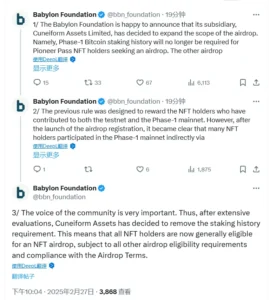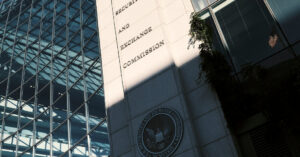SEC Regulations and Legal Challenges Surrounding Non-Fungible Tokens

This year, the SEC has increased its enforcement efforts against digital asset marketplaces for selling non-fungible tokens (“NFTs”) (and other digital assets) that the agency claims are securities. Some potential targets for SEC enforcement have proactively sued the SEC, challenging its jurisdiction to regulate digital assets and seeking a declaration that the digital assets are not securities. Additionally, there have been civil lawsuits filed by private plaintiffs against NFT issuers and marketplaces. The SEC has chosen to focus on selective enforcement actions against specific NFT projects and marketplaces rather than issue regulatory guidance or engage in rulemaking on whether NFTs qualify as securities. This regulatory landscape highlights the regulation-by-enforcement approach taken by the SEC towards the crypto industry during the Biden administration. However, there are indications that 2025 may bring changes to the NFT regulatory environment.
There is hope for the NFT industry as a bill has been introduced in Congress to provide clarity on these issues. Early signals from President-elect Donald Trump also suggest potential changes in regulatory scrutiny towards NFTs and crypto under the new administration. Entities issuing NFTs or operating NFT marketplaces should pay attention to the recent regulatory and litigation activity surrounding NFTs and evaluate how they can mitigate the risk of facing enforcement actions or lawsuits. Read on for further details on recent developments and key takeaways.
Recent SEC NFT Enforcements
Recent enforcement actions by the SEC against NFT projects and marketplaces include actions against OpenSea and Flyfish Club, among others. OpenSea received a Wells Notice from the SEC, alleging that it operated an unregistered securities exchange through the sale of NFTs on its platform. Flyfish Club faced cease-and-desist proceedings from the SEC over restaurant-related NFTs that were deemed securities. In response, OpenSea has joined an NFT legal defense fund to support creators and developers facing similar enforcement actions.
Crypto.com also filed a lawsuit against the SEC after receiving a Wells Notice, challenging the agency’s jurisdiction over secondary-market sales of certain network tokens on its platform.
Civil Class Action Lawsuits Alleging NFTs are Securities
Users have filed class action lawsuits against Nifty Gateway and OpenSea, alleging violations of federal securities laws in connection with the sale of NFTs on their platforms. These lawsuits argue that the NFTs meet the Howey test for an investment contract and are unregistered securities. Notably, one NFT-related class action lawsuit has already settled.
NFT Artists File Preemptive Lawsuit Against the SEC
Two artists filed a preemptive lawsuit against the SEC, seeking a declaratory judgment that NFTs representing ownership of their works are not securities. This legal action aims to prevent the SEC from pursuing enforcement actions against future sales of their NFT digital art.
Areas to Watch in 2025
A bill introduced in Congress called the New Frontiers in Technology Act (“NFT Act”) seeks to address the legal and regulatory treatment of NFTs. The NFT Act defines covered NFTs that exclude securities, provides protections for certain NFTs primarily used as art and collectibles, and calls for a study on NFTs by the Comptroller General. If passed, this bill could significantly impact the NFT industry and change the SEC’s enforcement approach towards NFTs.
Early signs from the incoming Trump administration indicate potential regulatory shifts that could benefit the cryptocurrency and NFT industries. With key appointments and a pro-crypto stance, the new administration may bring about regulatory clarity and innovation in the industry.
Conclusion
The legal landscape for NFTs remains uncertain, with the SEC focusing on selective enforcement actions rather than issuing clear regulatory guidance. However, significant changes could be on the horizon in 2025, particularly with potential legislative developments and the incoming Trump administration’s stance on crypto and NFTs. Companies involved in NFT issuance should seek legal advice to navigate the evolving regulatory environment and mitigate enforcement risks effectively.
Source link
#Legal #Issues #NonFungible #Tokens #SEC





